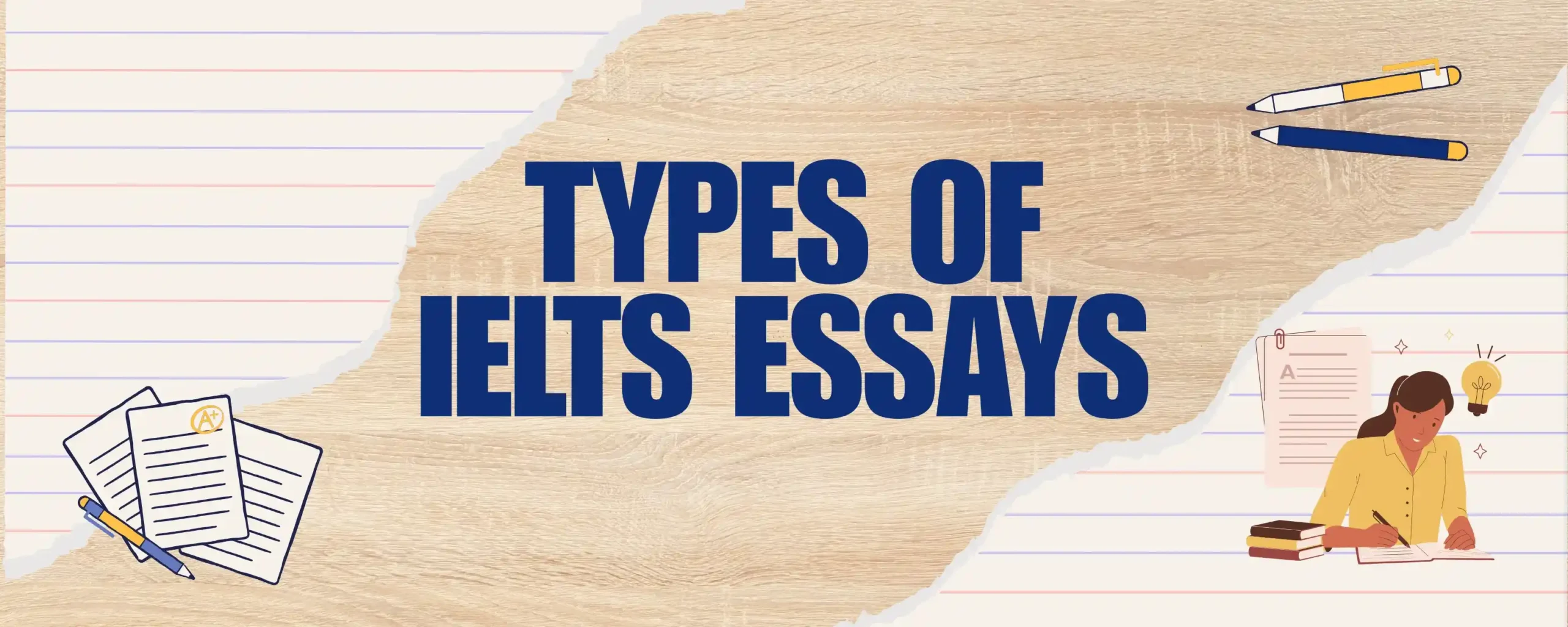The IELTS writing section is one of the most challenging parts of the exam for many candidates as it requires not only a good command of vocabulary and structure but also a high level of accuracy and coherence. This happens due to not knowing how to prepare and what to avoid during exam preparation. However, by understanding these pitfalls and learning strategies to overcome them can make a significant difference. Let’s explore seven common IELTS writing mistakes.
7 IELTS Writing Mistakes
The following are the 7 common mistakes that may impact your IELTS band score. Learn carefully how to you can avoid making them!
1. Maintaining the Word Limit
For the IELTS writing it is recommended to maintain the word limit. If you do not maintain the word limit, it will decrease your score. Writing more than the word limit will have a bad impact as well as the low limit says that you do not have the ability to write.
- Not Writing Enough Words:
In the IELTS writing test, meeting the minimum word count is crucial to avoid losing points. If you fall short of 150 words in Task 1 or 250 words in Task 2, it signals a lack of detail and development, which can significantly lower your band score.
Examiners may view your response as incomplete, or as lacking depth, which impacts your Task Achievement score. A well-organized response with enough supporting details ensures clarity and demonstrates your ability to fully address the prompt. Practicing with timed exercises and reviewing sample answers will help you develop the skill of reaching the required length without sacrificing quality.
- Writing Too Many Words:
While it’s essential to meet the word limit, exceeding it by too much can lead to off-topic content and affect focus. Many candidates mistakenly believe that writing more will earn them a better score, but overdoing it may actually cause examiners to deduct points if the response becomes unfocused or repetitive.
To avoid this, plan your essay before writing, allocate a portion of the word count to each section—introduction, body, and conclusion—and avoid adding unnecessary details to reach the limit. This approach keeps your answer clear and concise, showcasing your ability to communicate effectively within the required boundaries.
2. Repeating the Question
Many students pick the pointers from the questions and develop an idea by joining them to structure their answers. Repeating the question in your IELTS writing response not only wastes valuable words but can also make your answer seem unoriginal or overly dependent on the prompt. Instead of simply restating the question, aim to paraphrase it thoughtfully in your introduction and present your main idea with clarity.
This shows the examiner that you understand the topic and are ready to discuss it from your perspective. Avoid directly copying phrases from the prompt—doing so may give the impression of limited language skills and creativity. To enhance your response, focus on introducing new ideas or points, which will demonstrate depth and a unique approach to the topic.
Mastering the IELTS Writing Exam requires a blend of strategy and practice. If you’re looking to boost your skills and confidence, don’t miss our detailed guide: IELTS Writing Exam Preparation: Explore Tips and Examples.
3. Using a Limited Vocabulary
The ‘better’ the vocabulary, the ‘higher’ score. Vocabulary plays a significant role and can show up directly on your IELTS score. A rich vocabulary is essential in IELTS Writing, as it allows you to express ideas clearly and precisely, boosting the overall quality of your response. Using only basic or repetitive vocabulary can signal a limited range of language skills and negatively impact your score.
To avoid this, read regularly and practice using synonyms to build your vocabulary. You should consider reading passages every day or going through multiple online sources to improve your vocabulary and learn new terms. You should even listen to English shows and documentaries to expand your vocabulary.
For a high band score, aim to use varied yet accurate language that fits the context. Avoid repeating the same words by using synonyms when appropriate. For example:
- Basic: The number of cyclists went up a bit, then went down a bit again and stayed the same until the end of the period.
- Improved: The number of cyclists initially rose slightly, then experienced a minor decline, followed by a period of stability.
4. Overusing Complex Sentences
A common misconception about grammar is that ‘longer’, more complex sentences automatically lead to higher scores. While complex sentences are necessary, too many or overly complicated ones can confuse the reader and make your writing unclear. Complex doesn’t mean long and complicated. Remember, it should serve to enhance your argument, not complicate it.
Long sentences with multiple clauses are harder to process, and each additional clause increases the chance of errors. For instance, terms such as However, Therefore, Meanwhile, Typically, and Moreover should be used in accordance with the grammar and should be limited in the overall context. Overuse of transitions can make your writing seem cluttered, so limit yourself to two or three per paragraph. Aim to keep your sentences concise, using only as many clauses as necessary Mastering the balance between complex and simple sentences is essential for achieving a high band score
5. Misinterpreting the Task
Misinterpreting the task is a common mistake that significantly affects the Task Achievement score in the IELTS Writing exam. A failure to fully understand or address all parts of the question can lead to an incomplete response, which, no matter how well-written, can result in a lower band score. Here are some common pitfalls and strategies to avoid them:
- Starting to Write Immediately:
Many candidates begin writing as soon as they receive the task, which increases the chance of misunderstanding or missing important aspects. Instead, take a moment to carefully read, analyze, and plan your response. This extra time will ensure you address each part of the prompt comprehensively.
- Not Answering the Question Directly:
Ensure that your answer clearly addresses the question asked. Misinterpreting or partially addressing the prompt may leave your response lacking. If you’re uncertain, read the question multiple times to grasp the main points, and summarize it in your own words to confirm understanding before writing.
- Partially Addressing the Question:
Many IELTS prompts require you to discuss multiple aspects (e.g., two viewpoints or both advantages and disadvantages). Make sure to address each component of the question in a balanced way. If a question asks you to cover two viewpoints, devote equal attention to each in separate paragraphs and conclude with your opinion if asked.
- Writing About the General Topic, Not the Specific Question:
A common error is to write everything you know about a topic without directly answering the question. For example, if the question asks you to discuss the impact of technology on society, don’t simply write about technology in general; focus on how it specifically affects societal elements as per the question. Remember, the IELTS Writing exam assesses your ability to respond to the prompt, not your general knowledge on a topic.
6. Including a Personal Opinion or Reason
In IELTS Writing, including personal opinions or reasons is a common error, particularly in Task 2. Remember, you’re not writing a blog or editorial; this is an academic-style essay aimed at assessing your writing skills objectively. Personal opinions or stories may distract from the main argument and weaken your answer.
Instead, focus on factual, well-reasoned arguments and evidence that support your main points without inserting personal feelings. This approach helps maintain a formal, knowledgeable tone suitable for IELTS. Rely on examples that seem factual or widely applicable, rather than personal anecdotes or opinions, to enhance credibility and coherence. If you find it challenging, your IELTS coaching center should offer guidance on How to Write an Effective Essay.
7. Ignoring Grammar Mistakes and Spelling Accuracy
Frequent grammar and spelling errors can significantly impact your score. Proofread your work for common errors. Practice grammar exercises and use a dictionary to build your spelling accuracy. If you are aiming for a band score of 8 in the Writing section, you must make sure that your grammar is as accurate as possible and avoid these mistakes:
- Subject-Verb Disagreement:
Subject-verb disagreement is a common grammar error in IELTS writing. It happens when the subject and verb in a sentence do not match in number or person. To avoid this mistake, ensure that singular subjects are paired with singular verbs and plural subjects with plural verbs. Pay attention to clauses or other words that might come between the subject and verb, as they can cause confusion.
Example:
Incorrect: “The teacher and the student is talking.”
Correct: “The teacher and the student are talking.”
- Misuse of Articles (a/an/the):
Articles help specify whether a noun is general or specific. Misusing articles, especially the definite article “the,” can create confusion in IELTS writing. Learn the rules for using “a,” “an,” and “the,” and avoid omitting or adding articles unnecessarily.
Example:
Incorrect: “I saw dog in the park.”
Correct: “I saw a dog in the park.”
- Sentence Fragments:
Sentence fragments are incomplete sentences that lack a subject, verb, or complete thought. They often happen when writers create complex sentences but leave out key elements. To avoid this, make sure each sentence has a subject, verb, and expresses a complete idea. You also need to use appropriate punctuation marks to separate sentences or clauses.
Example:
Incorrect: Although he studied hard. He failed the exam.
Correct: Although he studied hard, he failed the exam.
- Run-On Sentences:
Run-on sentences contain two or more independent clauses that are not properly joined or separated. These can make writing unclear. Use punctuation, like commas, periods, colons or conjunctions to break down or join clauses effectively.
Example:
Incorrect: “She enjoys reading she reads every day.”
Correct: “She enjoys reading, and she reads every day.”
- Improper Preposition Usage:
Prepositions often lack consistent rules, which can make them challenging for IELTS candidates. Learn common prepositions and their correct usage, especially in idiomatic expressions and phrasal verbs, to improve accuracy.
Example:
Incorrect: “She arrived to the airport.”
Correct: “She arrived at the airport.”
- Verb Tense Issues:
Verb tense errors occur when the wrong tense is used for a specific context or when different tenses are mixed inappropriately. Pay attention to time markers and the sequence of events to maintain consistent verb tense throughout your writing.
Example:
Incorrect: “She is living in Paris for two years.”
Correct: “She has been living in Paris for two years.”
- Poor Punctuation Usage:
Punctuation errors, especially with commas and apostrophes, can make sentences confusing. Use punctuation sparingly but correctly, avoiding unnecessary marks. Focus on basic punctuation: capital letters, full stops, commas, and apostrophes, and avoid overusing semicolons or colons.
Example:
Incorrect: “its a beautiful day isn’t it?”
Correct: “It’s a beautiful day, isn’t it?”
- Spelling Errors and Typos:
Spelling plays a major role in written communication, so you must spell correctly. Spelling mistakes and typos can hurt your clarity. Since computer-based IELTS does not have a spell-check function, review common misspelled words and take time to proofread before submitting.
Example:
Incorrect: “Thier idea was intresting.”
Correct: “Their idea was interesting.”
- Word Order:
Correct word order helps ensure clarity. English sentence structure generally follows the pattern: Subject + Auxiliary Verb + Verb + Object. Misplacing words can confuse readers, so maintain a logical order.
Example:
Incorrect: “Every day he to school goes.”
Correct: “He goes to school every day.”
Conclusion
Mastering the IELTS Writing section requires careful attention to detail, from understanding grammar and vocabulary to practicing structured, relevant responses. By avoiding common mistakes mentioned above, you can present clear, cohesive answers that better reflect your language proficiency. Regular practice, thorough proofreading, and feedback from experienced instructors can further help you refine your writing skills.
Remember, achieving a high IELTS band score isn’t just about language knowledge; it’s about accurately applying that knowledge within the test’s structure and guidelines. With mindful IELTS preparation and practice, you can confidently navigate the IELTS Writing section and achieve the score you need.
Frequently Asked Questions
Q: How Many Mistakes Are Allowed in IELTS Writing?
Ans: In the IELTS Writing section, there isn’t a specific number of allowable mistakes, but the frequency and type of errors can impact your score. Examiners assess grammar accuracy, coherence, task achievement, and lexical resources. Minor spelling or grammar errors might be overlooked if your response is clear, well-organized, and effectively addresses the prompt.
However, consistent mistakes in grammar, vocabulary, or task relevance will reduce your band score, especially if they hinder comprehension. Aim for precision and clarity, and proofread your work to minimize errors for the best chance of achieving a high score.
Q: How Strict Is IELTS Writing?
Ans: IELTS Writing is evaluated rigorously, as it measures your ability to communicate effectively in English. Examiners follow strict criteria, focusing on: Task achievement/response, coherence & cohesion, Grammatical range and accuracy, and Lexical resource. They assess if you answered the question fully, used varied and appropriate vocabulary, structured your response well, and maintained grammatical accuracy.
While minor mistakes are tolerated, repeated or serious errors will lower your score. Maintaining a clear structure and addressing each part of the task directly is crucial for a strong result. Precision, consistency, and relevance are essential to meet the strict standards of IELTS Writing.
Q: What Are the Don’ts in IELTS Writing?
Ans: To succeed in IELTS Writing, it’s essential to avoid common pitfalls:
- Don’t stray from the question – Stay focused on the task and ensure each point is relevant.
- Avoid personal opinions – Unless explicitly asked, keep responses neutral and fact-based.
- Don’t exceed or fall short of the word limit – Aim for 150 words in Task 1 and 250 words in Task 2.
- Don’t use informal language – Maintain a formal tone throughout.
- Avoid overcomplicated sentences – Clarity is more important than complex structures.
Steering clear of these don’ts will help you achieve a higher band score by producing a focused, professional, and well-organized response.





